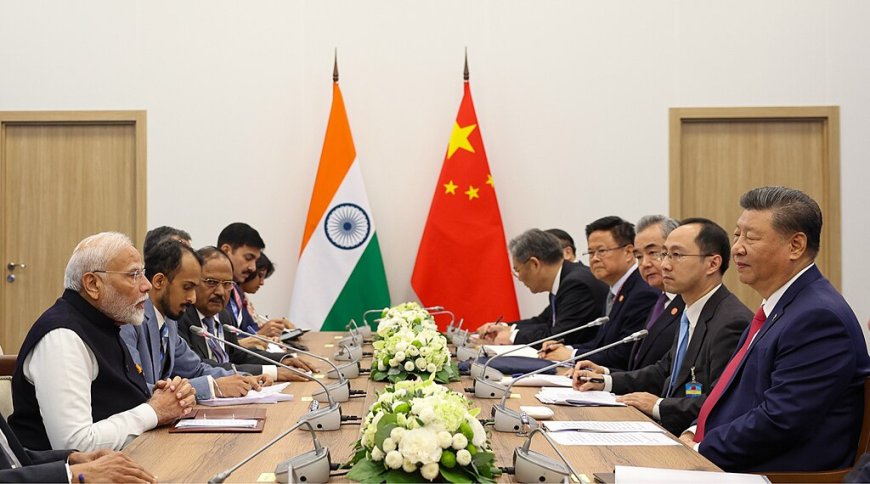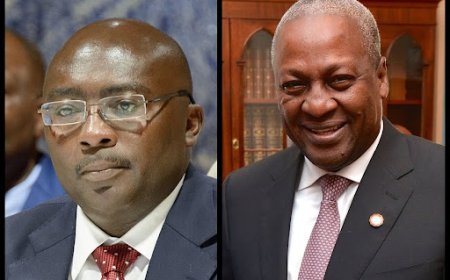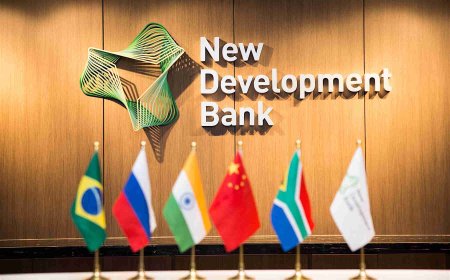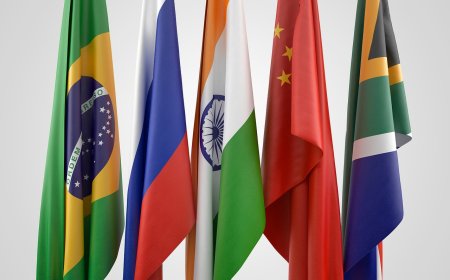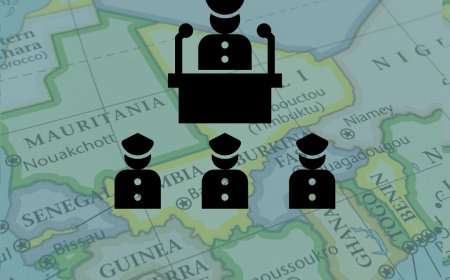This article is part of the BRICS thought leadership series, published by APRI in collaboration with the University of Johannesburg. It explores key themes from the 16th BRICS Summit and the group's broader initiatives. The series is edited by Ada Mare, Bhaso Ndzendze, Serwah Prempeh.
Summary
- China’s strategic goal in supporting the expansion of BRICS is to create an influential “Chinese-led bloc” that could challenge Western dominance and promote a multipolar world order. It aims to position BRICS+ as a critical platform for advancing these objectives.
- China’s influence within BRICS is strengthened by its economic power, which enables it to shape the bloc’s agenda, advocate for the inclusion of new members and drive key initiatives like the New Development Bank (NDB). This bank has helped reduce the heavy reliance on Western financial institutions.
- Economic cooperation and resource access are central to China’s strategy in BRICS. China seeks to foster partnerships through trade, investment and infrastructure development, expanding its influence within the bloc and securing essential resources from member states.
- However, geopolitical challenges within BRICS pose significant obstacles. Tensions between China and India and rivalries among new members like Saudi Arabia, the UAE and Iran complicate China’s efforts to build a cohesive bloc that can effectively counter Western influence.
- China’s leadership role in BRICS moving forward is crucial. To maintain the bloc’s relevance and stability as a counterbalance to Western alliances, Beijing must address internal conflicts and promote dialogue and cooperation among member states.
Introduction
In the aftermath of the announcement of the expansion of BRICS in 2023, former US National Security Advisor John Bolton appeared on CNBC International to address concerns about the threat posed by the bloc to Western interests. Bolton described BRICS as a diverse but incompatible collection of countries, suggesting that BRICS is a heterogeneous entity, a “very mixed bag” whose members “do not go together naturally” and whose expansion does not constitute a “serious challenge”. However, Reinhard Butikofer, an EU diplomat from Germany, expressed a different perspective, stating that the recent expansion of BRICS threatens Western dominance. According to Butikofer, BRICS is becoming increasingly confrontational toward the West, and many developing countries may turn to the bloc if Europe fails to prove its reliability and credibility as a fair partner.
These different perspectives on the implications of BRICS’ expansion present a compelling subject for exploration, as they highlight the complex dynamics of the members’ strategic interests and their influence within the bloc. As the largest economy within BRICS, China helps shape the bloc’s agenda and priorities. Given this context, exploring China’s strategic interests within BRICS becomes even more relevant. China’s evolving role, especially regarding its economic and geopolitical objectives and challenges, must be considered in the broader context of BRICS’ efforts to navigate global challenges. However, discussions on BRICS’ expansion overlook a critical question: How do China’s strategic interests shape the bloc’s agenda and decision-making processes, and what are the implications of this influence for global governance and economic cooperation? This knowledge gap hinders a comprehensive understanding of BRICS’ evolving role in international affairs. Building on the groundwork of literature on BRICS, this paper seeks to unpack the bloc’s expansion with a focus on China’s strategic interests and motivations, the obstacles and the potential implications of a Chinese-led bloc constructed from BRICS for the balance of power.
BRICS: An overview and the impact of the bloc
In 2001, Jim O’Neill introduced the acronym ‘BRIC’ to represent the rapidly developing economies of Brazil, Russia, India and China. O’Neill viewed these countries as four emerging economies poised to exert significant global dominance. With much emphasis on China, O’Neill’s critical arguments for the BRIC group were based on three central potentials. First, these nations were rapidly advancing economies with sizable and growing populations, abundant natural resources and expanding consumer markets, all of which supported their economic potential. Second, regarding global influence, the bloc was increasingly assuming influential roles in the global economy, challenging traditional Western dominance and changing global power dynamics. Last but not least, they offered attractive opportunities for foreign direct investment (FDI), business expansion and promising investment returns.
Despite these attributes, the bloc has been met with scepticism and pessimism. Many critics have expressed concerns about its durability and unity. Western powers and established international bodies have also voiced doubts about the significance and effectiveness of the bloc as a platform for emerging economies. It is fair to acknowledge that specific arguments raised by sceptics were grounded in concrete assumptions about economic, geopolitical and institutional considerations that underscored the potential impact and relevance of the bloc on global dynamics.
However, throughout its existence, BRICS, through a joint effort, has emerged as an important alliance capable of altering the global power structure. It is important to highlight its key developments, initiatives and achievements amid criticisms and a changing global landscape. The BRICS countries have also been instrumental in reshaping the world economy by offering an alternative funding source for infrastructure projects. The New Development Bank (NDB), established in 2014, finances infrastructure and sustainable development projects in member countries and developing nations. This initiative provides an alternative to the Bretton Woods institutions, notably the World Bank and the International Monetary Fund, often viewed as Western-dominated entities. By 2022, for instance, the NDB had a total investment portfolio of USD 30.2 billion allocated to 85 ventures spanning sectors such as renewable energy, transportation, water and sanitation, environmental conservation, social infrastructure and digital technology.
The NDB has prioritised sustainable development in its funding decisions. NDB-funded projects emphasise environmental sustainability, social inclusiveness and economic viability, contributing to the United Nations Sustainable Development Goals (SDGs). By investing in critical sectors such as transportation, energy and water management, the bank has enhanced connectivity and promoted sustainable development within the region. The NDB has also collaborated with other multilateral institutions and development banks to co-finance projects and leverage expertise, thereby increasing the impact and reach of NDB-funded initiatives.
The combined GDP of the BRICS countries has expanded significantly since the bloc’s establishment, and they have emerged as major drivers of the global economy. These countries have also made significant progress towards economic cooperation and integration due to their increasing economic strength. There have been evident strides in critical areas such as South-South cooperation, trade and institutional cooperation, and concerted action to address global challenges. China and Russia have also spearheaded efforts to reduce dependence on the US dollar in global trade as part of a broader strategy to weaken US financial hegemony. China, for instance, has pushed for the use of the Chinese yuan in international transactions. Russia has similarly moved towards trade in rubles or other local currencies, particularly in response to Western sanctions.
Beyond economic cooperation, BRICS has gained significant geopolitical influence and has become notable for taking a contrary position on global issues. For example, the stance of BRICS on the conflicts in Ukraine and Gaza contradicts that of many Western countries, reflecting broader geopolitical divides. In the case of Gaza, the bloc has condemned and called for an end to the conflict, contrasting sharply with Western countries’ strong support for Israel. Through their collective strengths, the bloc has also solidified its position on other global issues, such as climate change, and often advocates for climate justice and financial support for developing nations in global climate discussions. This advocacy directly contrasts with the Western stance, which tends to focus on immediate emission reductions from all countries, often without addressing the historical responsibility of industrialised nations. At COP27 in 2022, the bloc advocated for the loss and damage fund. This fund aims to compensate poorer countries for climate-related destruction, highlighting a direct challenge to Western reluctance to acknowledge past emissions. The fund represents BRICS’ broader strategy of promoting equity in global climate governance.
All in all, initially criticised as a ‘lazy acronym’ and an ‘arranged marriage’, the BRIC concept has unarguably evolved. The transition from ‘BRIC’ to ‘BRICS’ with the inclusion of South Africa in 2010 marked the bloc’s first expansion. At the 15th Summit in Johannesburg, the bloc doubled its membership by adding vital regional players like Ethiopia, Egypt, Iran, Saudi Arabia and the United Arab Emirates. This inclusion positions BRICS as a powerful bloc representing 45% of the world’s population, 28% of global GDP, 25% of global trade, 40% of global oil production and 25% of the world’s landmass. This amplifies BRICS’ economic and demographic significance and diversifies and strengthens its strategic reach. As a consequence, BRICS can exert more significant influence in shaping global economic policies, trade agreements and security arrangements, posing a formidable challenge to traditional Western hegemony.
China in BRICS: Interests and influence
Amid shifting global economic and political dynamics, understanding China’s strategic interests and influence within BRICS is critical to grasping its ambitions. As the largest economy in the bloc, China has pushed to deepen cooperation with other emerging economies and strengthen BRICS’ collective interests on the global stage. Beyond advocating for expanded membership, China has benefited from BRICS as a platform to counter Western dominance. Except for India, which initially was at odds over the BRICS expansion agenda, the other members – Brazil, Russia and South Africa – have all showed interest in expanding cooperation with other emerging economies, recognising the value of enhancing global governance through greater inclusion.
China’s active support for the recent BRICS expansion demonstrates its strategic interests and influence in the bloc. This expansion gives China leverage to advance the bloc’s strengths in its favour and navigate the complexities of a multipolar world. China’s plans for BRICS are using the alliance to boost its global influence through initiatives like the Belt and Road Initiative (BRI). However, other members have different priorities. Russia, for instance, is currently grappling with Western sanctions and sees BRICS as a way to counterbalance them by diversifying its economic partnerships, though the country’s economic leverage is limited compared to China’s. Brazil and South Africa focus more on regional development and often seek to use BRICS to gain more significant global influence. However, their global interests are more regionally focused and less ambitious than China’s.
Beyond its expansion advocacy, China’s influence is seen through its substantial contributions to pivotal projects like the NDB and the Contingent Reserve Arrangement. China was pivotal in establishing the NDB, a financial organisation that funds infrastructure and sustainable development ventures in BRICS nations and other emerging markets. China’s substantial financial contribution to the NDB underscores its changing role in multilateral development banks and its interest in fostering economic expansion and monetary equilibrium within the coalition.
For BRICS-Africa relations, China has already established itself as a key investor in African infrastructure and resources, and its growing influence within BRICS may lead to even more coordinated efforts to deepen economic ties between BRICS and African nations. This could bring increased investment and development projects to Africa, mainly through Chinese-backed initiatives like the BRI.
However, China’s growing interest and influence within BRICS is a double-edged sword. On the one hand, its economic and geopolitical power could bring more significant infrastructure and trade connectivity to the bloc, mainly through initiatives like the BRI. This could be a game-changer for member nations, fostering economic growth and cooperation. The flip side is that China’s increasing dominance may heighten tensions with other members, especially India, which is wary of China’s expanding influence. India’s concerns are valid, considering the two nations have a complex history and competing interests in the region.
Geopolitical rivalries within BRICS
BRICS is a multinational bloc with varying domestic and geopolitical interests. This has led to geopolitical rivalry among its member nations, impacting their collective efforts and ability to shape a new world order. For example, the power struggles between China and India, the economic downturn and political instability among the bloc members could significantly impede their ability to navigate complex geopolitical landscapes.
Longstanding border conflicts and territorial disputes, such as the Doklam standoff and recent clashes in the Galwan Valley, have strained bilateral relations between China and India. These developments have led to a prevailing atmosphere of suspicion between these two key bloc members. Both nations harbour historical resentments and opposing territorial contentions, hindering efforts to foster trust and enhance bilateral relations. Both countries view the border regions as strategically significant and seek to assert their influence, leading to competition for control and influence.
The ongoing geopolitical tensions between China and India may escalate further, mainly due to the significant political rifts among new players like Saudi Arabia, the UAE and Iran. China has strong ties with Iran, whereas India maintains close relationships with Saudi Arabia and the UAE. Any shifts in these alliances could increase friction. For instance, India has been cautious about the BRI, perceiving it as an economic venture and a means for China to enhance its geopolitical influence. India is especially sensitive to projects that involve neighbouring countries like Pakistan, which plays a crucial role in the BRI. This situation could intensify the existing tensions between India and China, as India may view the growing economic influence of the BRI as a way for China to overshadow its position on the global stage.
Including Saudi Arabia and Iran may also increase tensions due to their longstanding regional rivalry. Their differing interests and conflicting alliances may affect cohesion and decision-making. The escalating rift, particularly concerning regional security dynamics and maritime disputes in the Persian Gulf, adds complexity to BRICS’ relations and may impact the stability and progress of BRICS+. Additionally, this situation could have implications for global trade routes and energy flows, as disruptions in the Persian Gulf region could affect the energy security and market stability of BRICS’ economies. The likelihood of resolving these tensions within BRICS+ appears minimal.
Conclusion and Recommendations
In the context of the newly expanded BRICS, the 2024 summit in Russia marked a critical moment in shaping the future of global governance and economic cooperation. With inflation, debt crises and an uneven post-pandemic recovery at the forefront, the bloc is increasingly exploring alternative trade mechanisms, global economic restructuring and even a common currency to reduce dependence on the West. As the largest of the BRICS economies, China is mainly focused on consolidating its leadership of the bloc, enhancing economic ties with key regions and promoting its vision of a multipolar world.
Our analysis underscores China’s strategic interests within BRICS+, mainly how the bloc’s enlargement affects China’s economic and geopolitical influence. Additionally, China faces critical challenges, such as managing tensions with India and balancing divergent interests among BRICS members, all of which will shape the future trajectory of the bloc. Policymakers must consider how expansion will redefine BRICS’ global role and the implications for China’s leadership in this broader alliance.
To ensure the bloc remains a relevant and effective platform in the evolving global order, the bloc must address several strategic challenges and seize emerging opportunities. The following recommendations outline key steps BRICS+ should take moving forward:
- BRICS+ must prioritise internal cohesion by establishing mechanisms to address geopolitical tensions, particularly between China and India. Creating a formal conflict resolution framework will help the bloc manage disputes that threaten its unity, ensuring that internal rivalries do not undermine its collective goals.
- To avoid the perception of dominance by any member, BRICS should implement a rotational leadership model that allows each member to lead in agenda-setting. This would encourage more balanced decision-making and reduce concerns over China’s outsized influence within the bloc, fostering greater trust among members.
- BRICS+ should capitalise on its strategic partnerships with African countries and other emerging economies by formalising cooperation frameworks that address their development priorities. By aligning BRICS initiatives with local needs – particularly in infrastructure, resource development and technology transfer – the bloc can enhance its legitimacy and influence in the Global South, countering Western hegemony in these regions.
- BRICS+ should enhance the role of the NDB by expanding its financial capacity and reach. Increased collaboration on infrastructure projects, particularly in the Global South, can solidify the bloc’s position as a viable alternative to Western-led financial institutions, promoting shared development goals while advancing China’s vision of multipolar global governance.
About the authors
Emmanuel Frimpong Sarpong
Emmanuel Frimpong Sarpong is a PhD candidate at the University of Nottingham Ningbo, China. His research focuses on a constructivist and decolonised approach to understanding soft power in Africa, using the African philosophy of Ubuntu.
Hagan Sibiri
Hagan Sibiri holds a PhD in International Politics from Fudan University. He holds affiliate positions as a Senior Research Fellow at the Africa-China Centre for Policy and Advisory (ACCPA) in Accra, Ghana. His research focuses on China’s foreign policy towards the Global South and Africa’s foreign relations with major powers.
